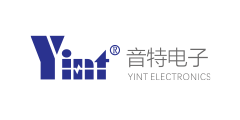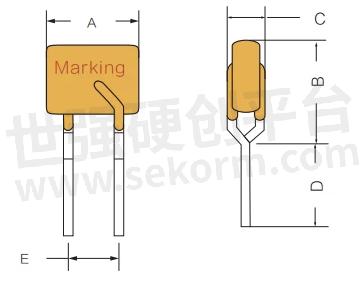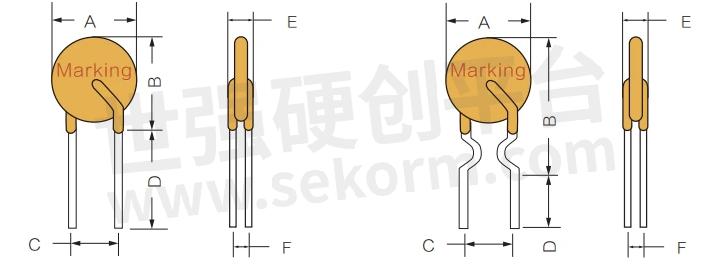YINT Resettable PTCS Offers 30V,60V,72V and 250V Series that are Used in Equipment with Frequent Abnormal Over-current Flowing Areas

Positive temperature coefficient devices, also known as re-settable fuses, provide over-current protection for electronic circuits and devices. The resistance of PTCs rises as the temperature rises. With this feature, the value change of resistance is not obvious when the safe current passes, the resistance value changes drastically when the abnormal current passes, this reaches the purpose of limiting abnormal current, and the resistance value will “reset” automatically when the abnormality is eliminated and temperature returns to a safe level.

Fig.1
YINT offers a polymeric positive temperature coefficient (PPTC) as an over-current protection device that could reduce the costs of warranty and maintenance. It is an ideal choice for equipment with frequent abnormal over-current flowing areas. PPTC is often used in consumer electronics, power lines, telecommunications, I/O connectors, process control, and medical equipment.

Fig.2
Radial Leaded Series:
●Protection devices up to 600Vdc
●A very high hold current
●Low trip–to-hold current ratio
●Low resistance
Surface mount devices:
●Small volume design
●Low hold current
●Very fast trip current
●Low resistance
Products Description
●Resettable PTCS - 72V Series

Fig.3
●Resettable PTCS - 250V Series

Fig.4
●Resettable PTCS - 30V Series

Fig.5
●Resettable PTCS - 60V Series

Fig.6
- +1 Like
- Add to Favorites
Recommend
- The Difference between Fuses and Fuses
- Repair Methods for Fuses -0805 Fuses
- What Is The Difference between Resettable Fuses and Traditional Fuses?
- Guidelines for Selecting Self Restoring Fuses and Disposable Fuses
- The Price Trend and Future of Fuses
- What are the Differences in Performance and Applications between Slow Blown Fuses and Fast Blown Fuses?
- GRL Provides Fuses and Fuses for BYD AUTO Energy Storage Battery Production Line
- Why are Domestic Fuses Cheap?
This document is provided by Sekorm Platform for VIP exclusive service. The copyright is owned by Sekorm. Without authorization, any medias, websites or individual are not allowed to reprint. When authorizing the reprint, the link of www.sekorm.com must be indicated.





























































































































































































































































































































































































































































































































































































































































































































































































































































































